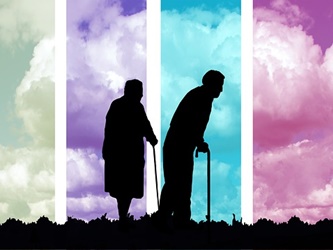
Image Source: Pexels
If you suffer from panic attacks, you understandably want quick relief from them. You may have heard of prescription anti-anxiety drugs like XANAX® (alprazolam) and Valium® (diazepam). These drugs belong to the drug class known as benzodiazepines or minor tranquilizers. As the central nervous system (CNS) depressants, they slow brain activity and can quickly treat panic attacks as well as help people sleep.
But anti-anxiety drugs can be habit-forming. In fact, “benzos” are popular as a drug of abuse by teens today. If you suffer from an anxiety disorder (like panic attacks), here’s what you need to know about anti-anxiety drugs.
How CNS Depressants Work
Most CNS depressants work by affecting a chemical in the brain known as gamma-aminobutyric acid (GABA). This causes the user to feel drowsy. Other effects of CNS depressants include:
- Slurred speech
- Dizziness, lightheadedness, drowsiness
- Coordination and movement problems
- Lowered blood pressure
- Confusion
- Slowed breathing
People can develop tolerance to CNS depressants, which means they will require larger doses in order to get the same effect. Used long-term, these drugs can result in dependence and addiction. At this point, stopping the drug suddenly can be dangerous. Dependence and addiction can even happen if the user was prescribed the CNS depressant by their doctor.
It is also possible to overdose on CNS medications. A large dose of the drug can cause a person’s breathing to slow and then stop, starving the brain of oxygen.
Alternatives to Anti-Anxiety Medication

Image Source: Pixabay
If you have an anxiety disorder, you may be reluctant to take a CNS depressant medication even if your doctor recommends it. Make sure to discuss with your doctor whether there are other alternatives. Here are a few types of drugs you can discuss.
Antidepressants
Antidepressants are most commonly used to treat depression, but they can be used for anxiety disorder too. The most popular class of antidepressants are the serotonin reuptake inhibitors (SSRIs), such as Prozac® (fluoxetine) and Zoloft® (sertraline). These drugs have become popular because they don’t cause as many side effects as older classes of antidepressants and can treat a variety of illnesses.
The downside to antidepressants is that most of them take a while to work. You have to take SSRIs consistently for four to six weeks to experience symptom relief. Some people also respond better to some antidepressants more than others, so you may have to try multiple drugs to see which work for you.
Antidepressants aren’t addictive – they’re not mind-altering – but you will have to slowly taper off your dose when treatment ends so your body can re-adjust.
Ask your doctor if antidepressants are right for you. If the four to six weeks of waiting for relief to kick in seems too overwhelming, ask your doctor about using CNS depressants short-term.
Since they must be taken regularly, antidepressants can get expensive. You can buy cheaper Canadian or international drugs from licensed pharmacies through an online pharmacy referral service. Typically, drugs sold outside the United States are substantially cheaper.
Psychotherapy (Talk Therapy)
Some people prefer not to take medication. If you relate to this, consider talk therapy. For example, cognitive behavioral therapy (CBT), a type of psychotherapy, is sometimes used as a first-line treatment for panic disorder. CBT trains you to change your ways of thinking, behaving and reacting to the feelings you experience during a panic attack.
Sometimes, patients will take the medication in conjunction with psychotherapy. Medication can help make psychotherapy more successful by relieving the patient of some symptoms as they learn new skills.
There are many different types of therapies and therapists, so do some research to see what works for you. It’s completely fine to try a therapist and then change to another if the two of you don’t click. You may also want to look at telemedicine if you live in an area with fewer in-person services.
Calming Techniques
Whether you choose medication, psychotherapy, or both, learning how to calm yourself during a panic attack will come in handy. Try the following tips:
- Instead of distracting yourself, ride out the attack and keep doing what you were doing.
- Try not to avoid situations that trigger attacks. Confronting them gives you the opportunity to learn that the situation isn’t harmful.
- Shift your focus to your surroundings as the attack ends.
- Do breathing exercises, slowly, deeply, and gently, in through your nose and out through your mouth.
- Do breathing exercises while counting and with your eyes closed.
Mindfulness and meditation are popular self-help techniques today, with plenty of online resources and even apps available to coach you. Check out resources online and try out a few to see what works best for you.
Live a Healthy Lifestyle
Finally, maintaining a healthy lifestyle won’t hurt. It may even help with your symptoms. Avoid alcohol, smoking, and caffeine. Eat regular meals and have a balanced diet. Exercise regularly — exercise can improve mood and relieve stress. Lastly, don’t underestimate the power of simply reaching out for help, whether it’s to a doctor or a trusted friend.

![[Infographic] Identifying a Panic Attack Infographic-F](https://www.safeandhealthylife.com/wp-content/uploads/2023/10/Infographic-F-150x150.webp)


